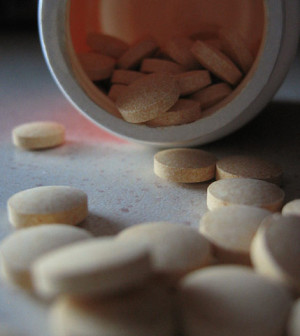Don't Miss
- 10 Strategies to Overcome Insomnia
- Could Artificial Sweeteners Be Aging the Brain Faster?
- Techniques for Soothing Your Nervous System
- Does the Water in Your House Smell Funny? Here’s Why
- Can a Daily Dose of Apple Cider Vinegar Actually Aid Weight Loss?
- 6 Health Beverages That Can Actually Spike Your Blood Sugar
- Treatment Options for Social Anxiety Disorder
- Understanding the Connection Between Anxiety and Depression
- How Daily Prunes Can Influence Cholesterol and Inflammation
- When to Take B12 for Better Absorption and Energy
Health Tip: Get the Facts on Iodine
By LadyLively on November 30, 2015

If you’re dwelling on the subject of getting enough minerals, then calcium, iron and potassium may be more on your mind than iodine.
But don’t neglect the latter, the Academy of Nutrition and Dietetics says.
- Your body doesn’t produce iodine, so you have to get it through diet. It’s essential for thyroid hormone production.
- Iodine deficiency can be a serious problem for pregnant women and their babies. Table salt contains iodine, but people on a low-salt diet may not be getting enough.
- Iodine is essential for healthy brain development of a fetus.
- Iodized salt, seaweed, seafood and saltwater fish are good sources of iodine.
Source: HealthDay
Copyright © 2026 HealthDay. All rights reserved.










